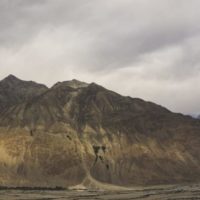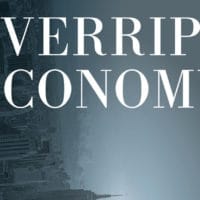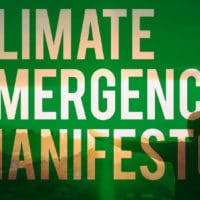-
Portrait of the 2009-2019 U.S. expansion
June 2019 marks the 10th anniversary of the current U.S. economic expansion. If it makes it through July it will surpass the 1991-2001 expansion as the longest on record. But while expansions are to be preferred over recessions, there are many reasons to view this record-breaking expansion critically. In fact, the nature of this expansion, hopefully captured in the following portrait, highlights the growing inability of the U.S. economic system, even when performing “well,” to meet majority needs.
-
Notes on Marx’s “General Law of Capitalist Accumulation”
Chapter 25 of Karl Marx’s, Capital, vol. 1 (“The General Law of Capitalist Accumulation”), not only explains the working conditions of the world’s peoples today; it also explains the conditions of our whole existence. Marx’s general law is nothing less than the lever upon which all our lives now pivot.
-
Have you heard of the CIA’s Iran mission center?
In 2017, the U.S. Central Intelligence Agency (CIA) created a special unit—the Iran Mission Center—to focus attention on the U.S. plans against Iran. This predated the Trump administration.
-
Marta Harnecker (1937-2019)
We mourn the passing of our dear comrade, Marta Harnecker.
-
Peace is a word that the West has taken from the Afghans
The war on Afghanistan has been ugly. Death is one consequence of war—2019 has been the deadliest year for civilians since the United States first began to bomb Afghanistan in 2001. Starvation is another—according to the UN, half of the population will need food assistance over the course of this year.
-
Capitalism, populism & crisis of liberalism
In this long interview with Jipson John and Jitheesh P.M., Akeel Bilgrami speaks at length on the concepts of populism, liberalism, fascism, postmodernism and post-truth.
-
Dossier 17: Venezuela and hybrid wars in Latin America
Dossier no. 17 reflects on the hybrid war unleashed against Venezuela. We document the repertoire of tactics, but also the motives behind them. We are interested not only in the recent attack on Venezuela, but in the similarities between this attack and others in Latin America over the past decades.
-
An Analysis of the 2019 Oakland Teachers’ Strike
The recent seven-day strike by the Oakland Education Association (OEA) was eerily similar in key ways to its 26-day strike in 1996. What happened in both cases was that union members and community allies won on the picket lines and in the streets but got a draw, at best, at the bargaining table.
-
Watching ‘When They See Us’, as a white woman
In order to really see these boys and their families white people have to see themselves as participatory in racism. So to see their innocence “we” must see our own part, our guilt, our responsibility in the newest forms of slavery, no longer chattel, but carceral.
-
Does Iran’s economic fate depend on a lifeline from China?
China has increased its oil purchases from Saudi Arabia by 43 percent in April. There is every indication that China will continue to increase its buys from the kingdom during the course of this year—to substitute for Iranian oil and, perhaps, for U.S. oil.
-
India, ideology and the New York Times
Liberals of all stripes ought to, in the years to come, pay careful attention to the way language is deployed in public discourse, to recognize shibboleths and call them out. Neoliberal reforms were smuggled in via this route, and if the exit-polls are to be believed, fascism will be next.
-
Money on the Left: Confronting Monetary Imperialism in Francophone Africa
Ndongo Samba Sylla on the history of political economy in pre- and post-colonial Africa, the theoretical bases and political stakes of the anti-CFA Franc movement, and how Modern Monetary Theory (MMT) ought to inform current and future efforts to restore political and economic sovereignty to West African nations.
-
Review of Alan Nasser’s, Overrripe Economy
Alan Nasser has written a masterful book, one that belongs in every serious leftist and socialist library, and one that certainly deserves to be widely and extensively read.
-
How not to measure inequality
When we look at inequality from the perspective of the poor – using the theory of increasing egregiousness – it becomes clear that the relative metric is inappropriate as a tool for assessing distribution. Certainly if our objective is to end poverty, this is the conclusion we must draw, as an additional dollar going needlessly to the rich could have been used to reduce poverty, and yet was not.
-
“There is no alternative” to managing the economy and the climate
The United States is the country most easily positioned to address climate change but it has done likely the least out of any rich country. China, a country significantly less wealthy than the United States, has likely done the most. In fact, a recent study provides some evidence that China’s carbon dioxide emissions peaked in 2013 and are declining in large part due to changes in China’s industrial structure, which includes pilot programs for pricing carbon, among many other things.
-
A Climate Emergency Manifesto to avert climate catastrophe
The panic button needs to be hit to declare climate emergency. We need serious action now; there is no more time to waste.
-
Pasqualina Curcio: ‘Hyperinflation is a Powerful Imperialist Weapon’
“Unilateral coercive measures…[directed by the U.S. against Venezuela] affect the entire population in a deliberate and systematic manner. That is why, in accordance with the Rome Statutes [of the International Criminal Court], they are crimes against humanity.”
-
Dossier 16: Resource sovereignty—the Agenda for Africa’s exit from the state of plunder
In this interview Gyekye Tanoh, head of the Political Economy Unit at the Third World Network-Africa based in Accra (Ghana), elaborates upon the themes of corporate plunder, resource nationalism and people-centered forms of resource management in Africa.
-
A first-hand account from Caracas from the day of the coup through May Day
Today there was a farcical attempt to take a military airport that fizzled. It turned into a dozen or so guys throwing stones and being ignored. The Guardian is shamelessly running video of something that happened weeks ago as though it were today. We were there and it was all normal.
-
Tricontinental Briefing No 1: Canadian mining companies
Introduction Of the world’s mining companies, 60% are headquartered in Canada. In February 2019, 216 companies were listed on the Toronto Stock Exchange (TSX) and 961 companies were listed on the TSX-Venture Exchange (TSXV). Mining accounts for 53% of the composite index. This kind of industry dominance suggests that investors trust the stability of the […]




















